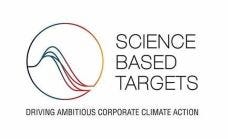SBTi research indicates rocky road ahead for scope 3 targets
The challenges Science Based Targets Initiative faces in revising its corporate net zero standard to better account for scope 3 emissions are laid bare in a number of publications it has put out there
☰
SBTi research indicates rocky road ahead for scope 3 targets
The challenges the Science Based Targets Initiative (SBTi) faces in revising its corporate net zero standard to better account for scope 3 emissions are laid bare in a number of publications it has put out this week
2 August 2024 /
In summary:
the reports produced "mixed results" due to limitations of evidence, further work is expected to draw useful conclusions;
discussion paper outlines options under consideration to enhance scope 3 target setting; and
consultants should contribute to the consultation of the draft corporate net zero standard, to be released in Q4 2024.
The Science Based Targets Initiative (SBTi) has published a set of reports as part of the review of its corporate net zero standard. The review, which was announced in May, aims to ensure that the standard continues to align with the latest scientific thinking and best practice, and addresses challenges related to scope 3.
Many stakeholders, including those in voluntary carbon markets and businesses struggling to meet their greenhouse gas emission reduction targets, are eagerly awaiting the review outcome.
Already hundreds of companies have had to drop their SBTi-aligned targets, after failing to meet the two-year mark targets. In SBTi’s Business Ambition for 1.5C Final Report, 53% of signed-up companies cited the biggest challenge to setting net-zero targets were scope 3 commitments.
As part of the review SBTi has released the following four technical reports to provide research into the suggested alterations:
a 100-page scope 3 discussion paper with some initial ideas for potential changes to target setting (see below);
a summary of evidence received on the effectiveness of Environment Attribute Certificates (EACs) from information submitted as part of an open call in autumn 2023;
a synthesis report, Part 1: Carbon Credits, based on the evidence submitted on carbon credits in corporate climate targets. There will be two additional reports published on EAC instruments; and
findings of an independent systematic review, carried out by Evidensia, on the effectiveness of carbon credits in corporate climate targets. This identified only six papers out of 10,000 that either met the criteria set, or contained comparable data to allow the effectiveness of carbon credits to be assessed in comparison to other emission abatement strategies by the same company. As a result, the review was not helpful, other than to note that further research is needed.
The discussion paper is more substantial, and outlines the key challenges for reporting scope 3 emissions. These include:
the use of aggregated emissions as the primary metric, which is problematic due to variability in GHG accounting methods, reliance on secondary data, and the lack of knowledge on emissions sources in corporate GHG inventories;
the way targets are set – often based on linear projections, when they are dynamic in nature;
the boundaries for target-setting, which stem from the requirement to cover a minimum percentage of scope 3 emissions (67% near-term, 90% long-term);
the ability of companies to influence and mitigate emissions in their value chains; and
complexities around measuring progress because of data limitations, emissions volatility, and the ability to link mitigation directly to GHG inventory changes.
The discussion paper also outlines several options being considered to improve scope 3 target setting. These include:
better tools to manage value chain emissions, for example outcome-based metrics that measure the alignment of an organisation’s upstream and downstream activities with global climate goals. This alignment could also be the basis of targets. Policies are also needed to drive specific outcomes;
alternatives to blanket targets, such as approaches that prioritise action on the most impactful activities. To identify these, three parameters are proposed, magnitude of emissions, exposure to activities in high-climate-impact sectors, and risks of locking in future emissions; and
further exploration of the role of influence, which was identified as a key challenge in SBTi’s 2023 survey.
SBTi says it expects to publish a draft of its revised standard at the end of 2024, meaning the revision will likely come into effect in 2025. Several stakeholders and media criticised the delay.
Alberto Carrillo Pineda, chief technical officer at SBTi says: "The outputs released today are a critical step in understanding how the SBTi can develop a more sophisticated approach to scope 3 to help more businesses set targets." He adds that the initiative believes that direct decarbonisation must remain the priority for corporate climate action and it is looking forward to extensive public consultation on the draft standard.






